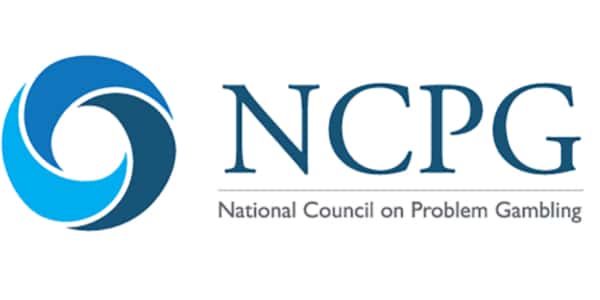Introduction
In the world of high stakes and flashing lights, casinos have long been a symbol of luxury and excitement. But beyond the glitz and glamour, these establishments play a significant role in shaping local economies and tourism sectors. Welcome to our deep dive into the untapped potential of casinos in boosting local economies and driving tourism.
Understanding the impact of gambling on local economies and tourism is crucial for a variety of reasons. For those interested in the casino industry, it provides insights into the economic viability and growth potential of this sector. For those concerned with economic development, it sheds light on how casinos can contribute to job creation, tax revenue generation, and overall economic stimulation.
The casino industry has a substantial economic footprint. In 2022 alone, commercial gaming revenue increased by an impressive 13.9% over the previous year, reaching a record high of $60.42 billion in the fourth quarter. This industry supports a total economic impact of $261.4 billion in business sales, providing 1.8 million jobs with $74.0 billion of labor income. Furthermore, it contributes a staggering $40.8 billion in federal, state, and local taxes, including $10.7 billion of gaming taxes.
But the influence of casinos extends beyond direct economic contributions. They also play a pivotal role in attracting tourists, with many travelers embarking on gambling vacations and seeking other forms of entertainment offered by casinos. This influx of visitors not only boosts the local economy but also promotes the growth of other businesses in the vicinity, from restaurants to retail stores.
However, it's not all a winning hand. The impact of gambling on communities can also have negative aspects, such as problem gambling leading to social issues and financial difficulties. Therefore, it's essential to strike a balance between leveraging the economic benefits of casinos and mitigating potential social costs.
Join us as we delve deeper into this fascinating topic, exploring the multifaceted impacts of gambling on local economies and tourism. Whether you're a stakeholder in the casino industry, an economic enthusiast, or simply curious about the ripple effects of gambling, this exploration promises to be an enlightening journey.
The Multiplier Effect: How Casinos Stimulate Local Economies
The multiplier effect is a fascinating economic concept that has significant implications for various industries, including the casino industry. Essentially, the multiplier effect refers to the proportional increase in final income that results from an injection of capital. In simpler terms, it's the ripple effect that occurs when an increase in spending leads to an even larger increase in income and consumption within an economy.

Applying this concept to the casino industry, we can see how casinos can act as catalysts for local economies. When a new casino opens, it not only creates jobs within the establishment but also stimulates demand in related sectors such as hospitality, tourism, and retail. This is because the money spent by the casino and its visitors circulates through the local economy, creating a domino effect of economic activity.
For instance, consider a scenario where a government increases spending by $45 billion on casino development. The national income could potentially rise by $120 billion, indicating a 2.67 times increase due to the multiplier effect. This is a clear demonstration of how an initial investment can lead to a significantly larger economic output.
Casinos attract visitors with their promise of entertainment and potential financial gain. These visitors, in turn, spend money not just at the casino, but also at local businesses such as restaurants, hotels, and shops. This spending stimulates these businesses, leading to increased revenue and potentially more job creation.
Moreover, casinos have been found to support nearly 1.8 million jobs across the country, contributing $261.4 billion of output (business sales), and generating $40.8 billion of federal, state, and local taxes. This illustrates the substantial economic benefits that casinos can bring to local economies through the multiplier effect.
However, it's important to note that the positive impact of casinos on local economies can vary based on factors such as the density of the area and competition with nearby casinos. Research suggests that casinos are more likely to support economic growth in less dense areas that do not have to compete with nearby casinos.
Therefore, the multiplier effect plays a crucial role in understanding how casinos can stimulate local economies. By attracting visitors who spend money at local businesses and creating jobs, casinos can significantly boost economic activity and growth. However, careful planning and regulation are necessary to ensure that the growth of the casino industry contributes positively to local communities without exacerbating social issues such as addiction and crime.
Opportunities of Casino Tourism for Local Economies
Casino tourism presents a plethora of opportunities for local economies, acting as a significant catalyst for economic growth and development. One of the most prominent benefits is its potential to attract a substantial influx of tourists. These visitors, drawn by the allure of gaming and entertainment, contribute significantly to the local economy by spending on various goods and services. This includes lodging, dining, transportation, and other forms of entertainment, thereby infusing a considerable amount of revenue into the local businesses.

Moreover, casinos are often accompanied by a range of amenities such as hotels, restaurants, and entertainment venues. This not only enhances the appeal of the area as a tourist destination but also creates a multitude of employment opportunities for local residents. From casino floor runners, cocktail servers, and hosts to bartenders, cashiers, and accountants, the job prospects are diverse and plentiful. The hospitality sector, in particular, sees a significant boost, with demand for hotels, resorts, and restaurants increasing in tandem with the rise in tourist arrivals.
Beyond direct employment within the casinos themselves, the presence of these establishments also stimulates job creation in related sectors. As tourists flock to the area, the demand for local businesses such as retail stores, transportation services, and cultural attractions grows, leading to further employment opportunities.
Another crucial aspect of the economic impact of casinos is the generation of tax revenue. Casinos contribute a substantial amount to federal, state, and local taxes, which can be utilized to fund public services and infrastructure. This includes education, healthcare, road construction, and other essential services that directly benefit the local community. In 2022 alone, commercial casinos in the United States generated tax revenue amounting to approximately 1.15 billion U.S. dollars in Nevada.
In less dense areas that do not have to compete with nearby casinos, research suggests that casinos are more likely to support economic growth. However, it's important to note that while the evidence of increased tax revenue is limited, the perceived benefits such as increased employment and growth in local retail sales are significant.

As you can see, casino tourism offers a wealth of opportunities for local economies, driving job creation, boosting local businesses, and generating valuable tax revenue. As such, it plays a pivotal role in fostering economic growth and development in regions where casinos operate.
Threats Posed by Casino Tourism to Local Economies and Communities
Casino tourism, while often seen as a boon for local economies due to the influx of visitors and potential revenue, can also pose significant threats to local communities. One of the most profound impacts is the rise in gambling addiction, which can have severe consequences on both families and the broader community.
Gambling addiction can lead to financial ruin for individuals and their families, with the loss of household or personal money being a common issue. This financial strain can lead to a host of other problems, including arguments, anger, violence, deception, and neglect within the family unit. Relationships can be negatively affected, communication can deteriorate, and confusion over roles and responsibilities can arise. The stress and anxiety associated with these issues can also lead to mental health problems, such as depression and low self-esteem.
Moreover, the presence of casinos can potentially increase crime rates in the local area. While some studies suggest that total crime offenses may decline shortly after a casino opens, over time, the effect on crime tends to grow. This is often linked to problem and pathological gambling, which can lead to bankruptcy, domestic abuse, and even suicide. The cost of crime to society is substantial, with estimates ranging from $4.71–$5.76 trillion annually, including transfers from victims to criminals. Tangible costs related to property loss and damage are also significant.

The impact of these issues extends beyond individual families to the wider community. Local governments and law enforcement agencies bear the brunt of the increased costs associated with higher crime rates, including funds spent on police protection, legal and adjudication services.
However, there are strategies that can be employed to mitigate these threats and promote responsible gambling practices. Casinos can play a crucial role in dispelling gambling myths, teaching the true odds and risks, promoting the use of limit setting (time/money), and linking those impacted by problem gambling to supports and treatment. Individuals can also take steps to control their gambling habits, such as balancing recreational gambling with healthy activities, only gambling with money budgeted for entertainment, and understanding the risks before placing bets.
While casino tourism can bring economic benefits, it's essential to consider the potential threats it poses to local economies and communities. By promoting responsible gambling practices and providing support for those affected by gambling addiction, we can work towards mitigating these threats and creating safer, healthier communities.
Therefore, it's crucial for governments and regulatory bodies to manage both advantages and disadvantages of casinos for tourism and local economies effectively to ensure that the benefits outweigh the costs.
Resources and Organizations that Focus on Responsible Gambling Education
Responsible gambling is a crucial aspect of the gaming industry, aimed at minimizing potential harm associated with gambling. Several organizations and resources focus on promoting responsible gambling education, providing support, and offering solutions for problem gambling.
The National Council on Problem Gambling (NCPG) is a leading organization in this field. It offers prevention, education, treatment, enforcement, research, responsible gaming, and recovery resources. The NCPG has developed Responsible Gaming Principles for Sports Gambling Legislation to guide new regulations and legislation. They also provide guidelines for payment processing to minimize financial harm associated with excessive gambling. Furthermore, they have developed Internet Responsible Gambling Standards to guide discussions among stakeholders on internet gambling.

Another organization dedicated to reducing gambling risks is the Responsible Gambling Council (RGC). They focus on innovation, awareness, and improved safeguards. Similarly, the International Center for Responsible Gaming (ICRG) is an organization that conducts research on gambling disorder.
In addition to these organizations, there are several resources available to help individuals practice responsible gambling. For instance, many online sportsbooks offer tools to help users set daily, weekly, and monthly limits on their gambling activities. There are also confidential helplines, such as the one offered by the National Council on Problem Gambling, which provides 24-hour support for problem gamblers or their family members.
Moreover, some casinos promote responsible gambling by supporting research and education efforts related to responsible gambling. They do this by funding research studies or partnering with organizations that focus on responsible gambling issues.
To sum it up, numerous organizations and resources are dedicated to promoting responsible gambling education. These entities play a vital role in preventing problem gambling, providing support to those affected, and educating the public about the importance of responsible gambling practices.
How Local Governments can Maximize the Economic Benefits of Casino Tourism while Minimizing the Negative Impacts
To maximize the economic benefits of casino tourism while minimizing its adverse effects, local governments can adopt several strategies.
Firstly, local governments should ensure that casinos are strategically located in areas where they can stimulate economic growth without causing undue harm to the community. This could involve placing them in areas with existing infrastructure and transportation links, thereby reducing potential issues such as traffic congestion and environmental degradation.
Secondly, local governments can implement stringent regulations to mitigate the potential negative social impacts of casinos, such as problem gambling and crime. This could include measures such as age restrictions, betting limits, and programs to help those struggling with gambling addiction. Regular audits and strict enforcement of these regulations can help maintain a safe and responsible gambling environment.

Thirdly, local governments can work closely with casinos to ensure that they contribute positively to the local economy. This could involve agreements for casinos to source goods and services from local businesses, thereby stimulating local economic activity. Additionally, casinos can be encouraged to provide training and employment opportunities for local residents, helping to reduce unemployment and increase income levels in the area.
Furthermore, local governments can use the tax revenues generated from casinos to fund public services and infrastructure improvements. This not only helps to offset any potential negative impacts of casinos but also contributes to the overall development of the local area.
Finally, local governments can promote responsible tourism practices within the casino industry. This could involve encouraging casinos to adopt sustainable practices, such as energy-efficient operations and waste reduction measures. Additionally, local governments can work with casinos to develop tourism packages that showcase other local attractions, thereby promoting a more balanced and sustainable form of tourism.
In short, while casino tourism can bring significant economic benefits, it is crucial for local governments to proactively manage its potential negative impacts. Through strategic planning, regulation, and collaboration with the casino industry, local governments can ensure that casino tourism contributes positively to the local economy while minimizing any adverse effects.
Is there any significant contribution of the gambling industry to the GDP of any country?
The gambling industry is a significant contributor to the Gross Domestic Product (GDP) of many countries. This sector, which includes casinos, lotteries, and other forms of gambling, has been recognized as a major player in the United States' economy. In fact, in 2016, it was reported that gambling contributed about 1.7 percent of the GDP, or approximately $240 billion.

The gaming industry's impact extends beyond just the United States. For instance, in the Philippines, establishments engaged in gambling activities contributed Php 205.52 billion in 2019, accounting for 85.1% of the total revenue of the Arts, Entertainment, and Recreation sector. Similarly, in Europe, the gambling industry is responsible for a significant proportion of GDP in many countries.
The gambling industry does contribute significantly to the GDP of many countries, but it's crucial to balance these economic benefits with the potential social costs.
What is the Importance of Gambling in the Hospitality Industry?
Gambling plays a significant role in the hospitality industry, contributing to its growth and diversification. This activity is often associated with casinos and resorts, which provide a wide range of opportunities that span the entire spectrum of the hospitality field. These include conventions, meetings, food and beverage services, hotel lodging, travel, and tourism.

Casinos and resorts are integral parts of the hospitality industry, offering various business opportunities and contributing significantly to tourism. Gambling tourism refers to the act of traveling to specific destinations where gambling is legalized. These activities often take place in resort venues, providing patrons with entertainment and accommodation. Casino hotel resorts have been attracting visitors to areas like Las Vegas since the 1930s, contributing to the growth of the tourism industry.
Moreover, gambling contributes to the growth of the hospitality industry by enhancing the services offered by casino hotels. These establishments provide services beyond online casino games, such as iconic destinations, fine dining, and world-class entertainment, which keep customers returning for more.
Furthermore, the gaming industry acts as a tourist attraction, bringing in revenue from tourists worldwide. The industry continues to thrive, ensuring continued tourism and economic growth.
However, the importance of gambling in the hospitality industry extends beyond economic contributions. It also leads to increased tourism, as many casino visitors travel long distances for a gambling vacation and seek other forms of entertainment. This demand has led many casinos to offer concert venues, shows, spas, and other amenities for broader appeal.
In conclusion, gambling plays a crucial role in the hospitality industry, contributing to economic growth, tourism, and the enhancement of services offered by the industry. Its importance is evident in its economic contributions, its role in increasing tourism, and its influence on the services provided by the hospitality industry.
What gaming entertainment does the hospitality industry offer?
The hospitality industry offers a wide array of gaming entertainment, which is a significant and highly competitive sector. Gaming entertainment in the context of the hospitality industry primarily refers to the casino gaming business. This includes all aspects of casino operations, from the gaming floor, which is often the main focus, to other key components such as hotel operations, entertainment offerings, retail shopping, recreational activities, convention services, and health spas.

Gaming entertainment is not limited to casinos alone. It also encompasses card games, charitable games, lottery-operated games, and betting on greyhound and horse races. The availability of these diverse gaming options plays a crucial role in attracting guests and influencing their choice of hotel or resort.
The immersive nature of gaming, coupled with technological advancements, interactivity, social experiences, diverse content, accessibility, and professionalization through esports, has positioned gaming as the future of entertainment.
In addition to providing enjoyment, gaming entertainment also contributes to the overall guest experience, which is the primary focus of the hospitality industry. Whether it's enjoying a good meal, relaxing in a luxurious spa, getting a good night's rest, or engaging in gaming activities, the hospitality industry aims to ensure each guest is well taken care of and has an enjoyable experience.
Conclusion
In conclusion, the impact of gambling on local economies and tourism is a multifaceted issue with both positive and negative implications. On one hand, casinos can significantly boost local economies by generating substantial tax revenues, creating job opportunities, and driving tourism. They also indirectly benefit related businesses such as hotels, restaurants, and retail outlets, contributing to overall economic growth.
However, it's crucial to acknowledge the potential drawbacks associated with casino tourism. These include increased crime rates, problem gambling behaviors, and potential negative impacts on local retail sales. The presence of casinos can also lead to social issues like bankruptcy, domestic abuse, and even suicide among problem gamblers.
The key to harnessing the benefits of casino tourism lies in effective regulation and strategic planning. Governments and industry stakeholders must work together to ensure fair treatment for players, promote responsible gaming practices, and protect vulnerable groups. Additionally, revenue generated from casino tourism should be invested back into the community, supporting initiatives that directly benefit local residents and the economy.
As we move forward, it's essential to continue exploring this complex issue, seeking ways to maximize the benefits of casino tourism while mitigating its challenges. We encourage readers to delve deeper into the subject, share their insights, and contribute to the ongoing conversation about the role of gambling in our economies and communities.






